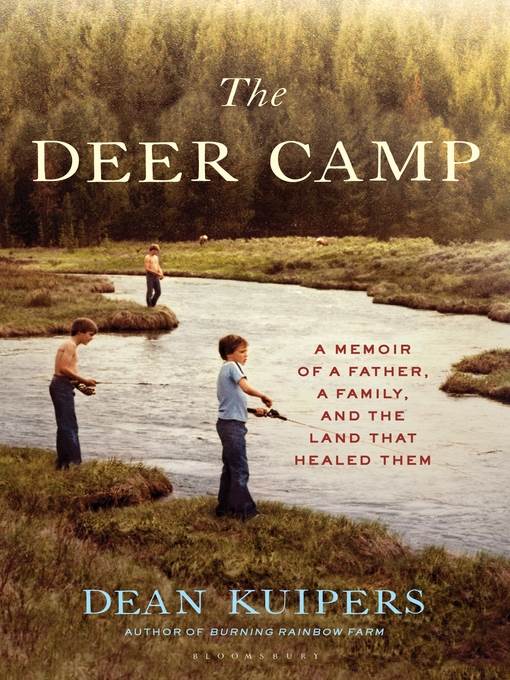
The Deer Camp
A Memoir of a Father, a Family, and the Land that Healed Them
کتاب های مرتبط
- اطلاعات
- نقد و بررسی
- دیدگاه کاربران
نقد و بررسی

March 18, 2019
Environmental writer Kuipers (Burning Rainbow Farm) recounts his family’s connection to Michigan’s landscape and its influence on his and his brothers’ relationship with their father. Despite their father’s philandering, domineering attitude and religious zeal, Kuipers and his younger brothers, Brett, who finds solace being alone in the woods, and Joe, an alcoholic with suicidal thoughts, had one positive connection with their dad: the outdoors—though the hunting, fishing, or trapping trips would usually end with father Bruce angry and distant. In 1989, Kuipers’s brothers and father bought a deer camp. Skeptical at first, Kuipers, then living in New York City, saw it as a chance to bond, but Bruce was unable to accept his sons’ ideas about restoring the camp’s overgrown farm habitat by cutting down stands of old timber and planting crops and trees and to better suit the ecosystem. Bruce fought to preserve the land as it was, causing continual friction with his sons; Bruce eventually relented, and in doing so, the men’s relationships changed: Bruce finally found respect, Kuipers found a loving grandfather to his young son, Brett continued to care for and improve the deer camp, and Joe learned to become his own man by finding a piece of land to call home. Kuipers’s gratifying narrative endearingly explores father-son relationships as well as the transformational power of nature.

March 15, 2019
Kuipers (Operation Bite Back: Rod Coronado's War to Save American Wilderness, 2009, etc.) returns with a frank, personal, and sometimes-painful account of his fractured family.The author, who has written about environmental issues for decades, tells a grim but ultimately uplifting story about his family, mostly his father, a serial adulterer in his first marriage but a man whom his three sons loved (despite his dominant personality), a man who eventually, writes Kuipers, became a responsible adult. We learn about his father's history as well as his two brothers, one of whom has long battled psychological issues. We learn about the women in these men's lives (more than one divorce) and about their children. But the dominating, unifying factor in their experiences is hunting. Kuipers is quick to assure us--and show us--that they are not mere trophy hunters but rather ecological ones. They eat what they kill, and they kill, it seems, respectfully. (In one scene, the author speaks to a buck he has just shot.) The author's father believed that if he and his sons restored an old Michigan hunting camp he bought, it would improve their lives--and he was right. Year after year, they have planted, cultivated, and tenderly cared for the land, knowing that doing so would bring back the wildlife. Although the men often bickered and battled verbally with one another, they all eventually recognized the significance of what they created: unity and family. Kuipers alludes often to other writers and thinkers--from ecological scientists and eco-humanists to poets W.S. Merwin and Wendell Berry--and if he sometimes waxes a little spiritual/mystical, it is the magic of the land that animates him.Lushly detailed and full of eco-devotion, this candid narrative has much to say about human beings bearing burdens, coping, and aiding one another.
COPYRIGHT(2019) Kirkus Reviews, ALL RIGHTS RESERVED.

























دیدگاه کاربران